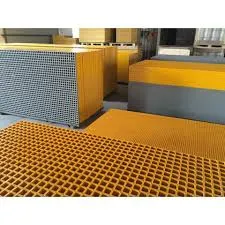
-
 Afrikaans
Afrikaans -
 Albanian
Albanian -
 Amharic
Amharic -
 Arabic
Arabic -
 Armenian
Armenian -
 Azerbaijani
Azerbaijani -
 Basque
Basque -
 Belarusian
Belarusian -
 Bengali
Bengali -
 Bosnian
Bosnian -
 Bulgarian
Bulgarian -
 Catalan
Catalan -
 Cebuano
Cebuano -
 China
China -
 China (Taiwan)
China (Taiwan) -
 Corsican
Corsican -
 Croatian
Croatian -
 Czech
Czech -
 Danish
Danish -
 Dutch
Dutch -
 English
English -
 Esperanto
Esperanto -
 Estonian
Estonian -
 Finnish
Finnish -
 French
French -
 Frisian
Frisian -
 Galician
Galician -
 Georgian
Georgian -
 German
German -
 Greek
Greek -
 Gujarati
Gujarati -
 Haitian Creole
Haitian Creole -
 hausa
hausa -
 hawaiian
hawaiian -
 Hebrew
Hebrew -
 Hindi
Hindi -
 Miao
Miao -
 Hungarian
Hungarian -
 Icelandic
Icelandic -
 igbo
igbo -
 Indonesian
Indonesian -
 irish
irish -
 Italian
Italian -
 Japanese
Japanese -
 Javanese
Javanese -
 Kannada
Kannada -
 kazakh
kazakh -
 Khmer
Khmer -
 Rwandese
Rwandese -
 Korean
Korean -
 Kurdish
Kurdish -
 Kyrgyz
Kyrgyz -
 Lao
Lao -
 Latin
Latin -
 Latvian
Latvian -
 Lithuanian
Lithuanian -
 Luxembourgish
Luxembourgish -
 Macedonian
Macedonian -
 Malgashi
Malgashi -
 Malay
Malay -
 Malayalam
Malayalam -
 Maltese
Maltese -
 Maori
Maori -
 Marathi
Marathi -
 Mongolian
Mongolian -
 Myanmar
Myanmar -
 Nepali
Nepali -
 Norwegian
Norwegian -
 Norwegian
Norwegian -
 Occitan
Occitan -
 Pashto
Pashto -
 Persian
Persian -
 Polish
Polish -
 Portuguese
Portuguese -
 Punjabi
Punjabi -
 Romanian
Romanian -
 Russian
Russian -
 Samoan
Samoan -
 Scottish Gaelic
Scottish Gaelic -
 Serbian
Serbian -
 Sesotho
Sesotho -
 Shona
Shona -
 Sindhi
Sindhi -
 Sinhala
Sinhala -
 Slovak
Slovak -
 Slovenian
Slovenian -
 Somali
Somali -
 Spanish
Spanish -
 Sundanese
Sundanese -
 Swahili
Swahili -
 Swedish
Swedish -
 Tagalog
Tagalog -
 Tajik
Tajik -
 Tamil
Tamil -
 Tatar
Tatar -
 Telugu
Telugu -
 Thai
Thai -
 Turkish
Turkish -
 Turkmen
Turkmen -
 Ukrainian
Ukrainian -
 Urdu
Urdu -
 Uighur
Uighur -
 Uzbek
Uzbek -
 Vietnamese
Vietnamese -
 Welsh
Welsh -
 Bantu
Bantu -
 Yiddish
Yiddish -
 Yoruba
Yoruba -
 Zulu
Zulu
High Temperature Applications of Fiberglass Products for Enhanced Durability and Performance
Fiberglass Products for High Temperature Applications
In the realm of industrial materials, fiberglass products have garnered significant attention for their unique properties, particularly in high-temperature applications. As industries continue to evolve and technology advances, the demand for materials that can withstand extreme conditions has risen. Fiberglass, a composite material made from finely woven glass fibers, has emerged as a superior solution for a myriad of applications where heat resistance is crucial.
Understanding Fiberglass
At its core, fiberglass is comprised of silica, which is known for its durability and high melting point. This makes fiberglass an ideal candidate for high-temperature environments. The fibers are typically combined with resins that further enhance thermal stability, offering a robust solution capable of maintaining structural integrity under thermal stress. Unlike metals, fiberglass does not corrode easily and can withstand thermal shock, making it a preferred material in industries such as aerospace, automotive, and manufacturing.
High-Temperature Resistance
One of the standout features of fiberglass products is their ability to endure high temperatures without compromising strength or structure. Many fiberglass composites can tolerate temperatures exceeding 540 degrees Celsius (1000 degrees Fahrenheit). Such properties make them suitable for applications involving direct contact with heat sources, such as furnace linings, insulators, and thermal barriers. In contrast to traditional materials like aluminum or steel, which may deform or weaken under similar conditions, fiberglass maintains its integrity, thereby ensuring operational safety and efficiency.
Applications Across Industries
Fiberglass has found a wide array of applications due to its advantageous properties. In the aerospace industry, it is used to create components that are both lightweight and durable, reducing overall aircraft weight while ensuring safety at high altitudes and temperatures. Similarly, the automotive industry utilizes fiberglass in the production of heat shields and other components that must withstand the rigors of engine operation.
fiberglass products for high temperature

In manufacturing, fiberglass insulation products are indispensable. They are employed in various thermal applications, such as industrial ovens, dryers, and kilns, where maintaining a stable temperature is vital. The excellent insulation properties of fiberglass prevent heat loss, improving energy efficiency and reducing operational costs.
The Advantages of Fiberglass
The benefits of using fiberglass products in high-temperature applications extend beyond heat resistance. These materials possess a favorable strength-to-weight ratio, which allows for the creation of lightweight structures without sacrificing strength. This characteristic can lead to improved fuel efficiency in transportation sectors and lower material costs in manufacturing processes.
Furthermore, fiberglass is relatively easy to mold into complex shapes, offering versatility in design and application. This adaptability enables engineers and designers to create innovative solutions tailored to specific high-temperature challenges.
Environmental Considerations
In today’s industrial landscape, sustainability is a critical consideration. Fiberglass products are often seen as more environmentally friendly compared to traditional materials, as they can reduce energy consumption through their excellent insulation properties. Additionally, advances in manufacturing processes have led to the creation of recyclable fiberglass materials, contributing to a circular economy model.
Conclusion
As we move towards a future that requires more resilient materials, fiberglass is establishing itself as a crucial player in high-temperature applications. Its unparalleled heat resistance, combined with light weight and strength, make it an ideal choice across various industries. With continuous innovations and improvements in fiberglass technology, we can expect to see even broader applications and enhanced performance, meeting the ever-increasing demands of high-temperature environments. Embracing fiberglass products will not only optimize operational efficiency but also pave the way for sustainable industrial practices in a rapidly changing world.









